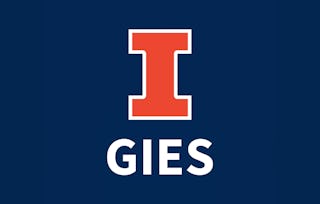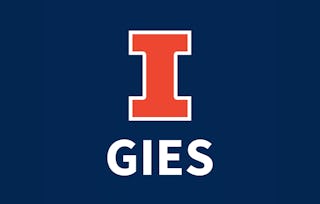In this course, you will start by reviewing the fundamentals of investments, including the trading off of return and risk when forming a portfolio, asset pricing models such as the Capital Asset Pricing Model (CAPM) and the 3-Factor Model, and the efficient market hypothesis. You will be introduced to the two components of stock returns – dividends and capital gains – and will learn how each are taxed and the incentives provided to investors from a realization-based capital gains tax. You will examine the investment decisions (and behavioral biases) of participants in defined-contribution (DC) pension plans like 401(k) plans in the U.S. and will learn about the evidence regarding the performance of individual investors in their stock portfolios. The course concludes by discussing the evidence regarding the performance of actively-managed mutual funds. You will learn about the fees charged to investors by mutual funds and the evidence regarding the relation between fees charged and fund performance. Segments of the portfolios of mutual funds that may be more likely to outperform and examples of strategies designed to “earn alpha” will also be introduced.

Ends soon: Gain next-level skills with Coursera Plus for $199 (regularly $399). Save now.

Investments II: Lessons and Applications for Investors
This course is part of Financial Management Specialization

Instructor: Gies College of Business, University of Illinois
37,521 already enrolled
Included with
(882 reviews)
What you'll learn
Interpret and use the CAPM and the 3-Factor Model to evaluate the performance of investments.
Compare returns in the form of dividends and capital gains and their tax consequences.
Describe evidence regarding the performance of individuals’ stock investments and the performance of actively-managed mutual funds.
Evaluate strategies designed to “earn alpha”.
Skills you'll gain
Details to know

Add to your LinkedIn profile
5 assignments
See how employees at top companies are mastering in-demand skills

Build your subject-matter expertise
- Learn new concepts from industry experts
- Gain a foundational understanding of a subject or tool
- Develop job-relevant skills with hands-on projects
- Earn a shareable career certificate

There are 5 modules in this course
During the Orientation, you will become familiar with the course, your classmates, and our learning environment. In Module 1, we will briefly review the fundamentals of investments, including the trading off of return and risk when forming a portfolio, asset pricing models such as the Capital Asset Pricing Model (CAPM) and the 3-Factor Model, and the efficient market hypothesis. We will also discuss the two components of stock returns – dividends (cash received) and capital gains (changes in price since purchase).
What's included
15 videos11 readings2 assignments1 discussion prompt
In Module 2, we discuss the investment decisions of participants in defined-contribution (DC) pension plans like 401(k) plans in the U.S. Not falling prey to common behavioral biases is key to sound financial decision-making in these retirement plans, so we will discuss common behavioral biases of DC pension plan participants.
What's included
12 videos2 readings1 assignment
In Module 3, we will learn about the evidence regarding the performance of individual investors in their stock portfolios. A few key behavioral biases that affect many individuals will be highlighted, and the potential information embedded in some parts of individual investors’ stock portfolios will be discussed.
What's included
14 videos2 readings1 assignment
In Module 4, we will learn about the evidence regarding the performance of actively-managed mutual funds. We will also discuss a few examples of portfolio strategies designed to “earn alpha” (i.e., yield positive risk-adjusted returns).
What's included
17 videos2 readings1 assignment
It's now time to say goodbye to the Investments II course! Key takeaways from the course are reviewed. Don't forget to answer the survey question regarding how was Scott's sequel that is located at the end of the Conclusion to Investments II: Lessons and Applications for Investors!
What's included
1 video2 readings1 discussion prompt
Earn a career certificate
Add this credential to your LinkedIn profile, resume, or CV. Share it on social media and in your performance review.
Build toward a degree
This course is part of the following degree program(s) offered by University of Illinois Urbana-Champaign. If you are admitted and enroll, your completed coursework may count toward your degree learning and your progress can transfer with you.¹
Instructor

Offered by
Explore more from Finance

University of Illinois Urbana-Champaign

University of Illinois Urbana-Champaign

University of Illinois Urbana-Champaign

University of Illinois Urbana-Champaign
Why people choose Coursera for their career




Learner reviews
882 reviews
- 5 stars
84.03%
- 4 stars
11.89%
- 3 stars
2.37%
- 2 stars
0.56%
- 1 star
1.13%
Showing 3 of 882
Reviewed on Dec 6, 2017
Professor Weisbenner is amazing! Insanely smart, yet delvers complex concepts in such a manner you would never realize it. This is a must take class for investments!
Reviewed on Mar 21, 2017
Thank you, Professor Scott Weisbenner, for an excellence course that you put your heart and passion (for Star Wars) into.
Reviewed on Dec 12, 2016
Excellent class! Very useful information for investing. Great faculty focus sessions with UIUC researchers!. Also love the passion that Dr. Weisbenner displays in teaching. Would highly recommend!
Frequently asked questions
Once you enroll for a Certificate, you’ll have access to all videos, quizzes, and programming assignments (if applicable). If you choose to explore the course without purchasing, you may not be able to access certain assignments.
You will be eligible for a full refund until 2 weeks after your payment date. You cannot receive a refund once you’ve earned a Course Certificate, even if you complete the course within the 2-week refund period. View our full refund policy.
Yes! Coursera provides financial aid to learners who would like to complete a course but cannot afford the course fee. To apply for aid, select "Learn more and apply" in the Financial Aid section below the "Enroll" button. You'll be prompted to complete a simple application; no other paperwork is required.
More questions
Financial aid available,





